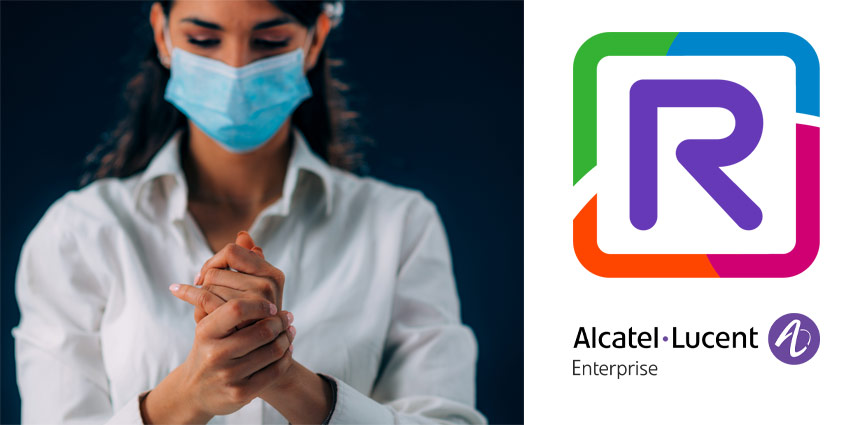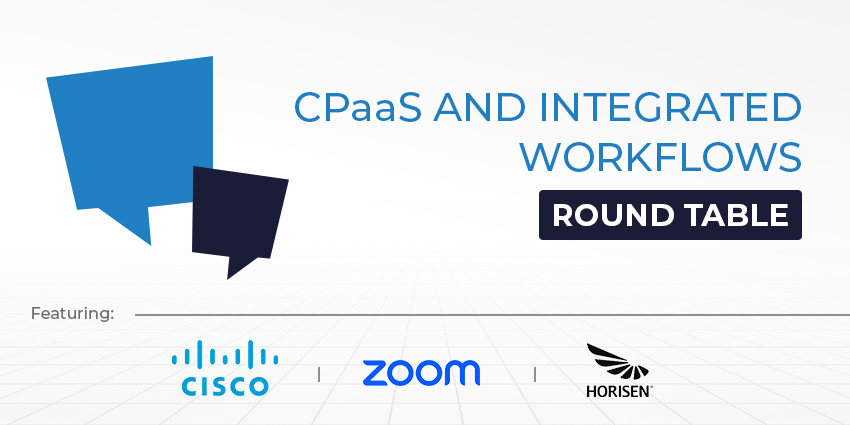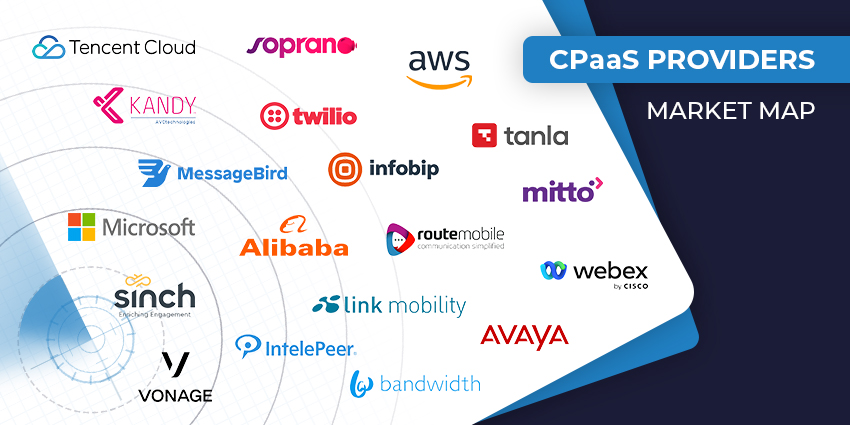The COVID-19 pandemic has prompted a massive shift in the way we live and work. Today’s teams are more distributed than ever. Communication is quickly becoming a video-first concept, and we’re all looking for new ways to remain connected while staying physically separate.
Communication leaders like Alcatel-Lucent Enterprise (ALE) are on the front lines of this transformation to a new landscape. These innovators offer more flexible and scalable solutions for companies that need to adapt quickly in the short-term and carefully in the long-term.
To better understand how companies are handling the changing landscape, and what ALE can do to support them, I spoke to Head of Digital Government Solutions at ALE, Jacques Der Ohanian. Here’s what he had to say.
What’s your perspective on the crisis so far?

To start with, I asked Jacques how he thinks companies are handling the shift into a new way of working. He told me that business leaders are realizing how quickly risks can transform into problems. In the past, as long as we didn’t personally deal with a problem ourselves, that issue became an abstract concept – like cyber security issues, for instance.
“With COVID-19, everyone is experiencing the same crisis, and everyone is having to find the right way to respond. We’re beginning to notice that it would have been better to anticipate and prepare for these problems than to try and deal with them as they arrive. This is particularly true for the public services sector.”
According to Jacques, teams see first-hand evidence that they need to keep their systems and solutions up-to-date. Platforms need to be flexible enough to add new functionality whenever it’s necessary. Many groups and companies simply didn’t have the correct building blocks in place to help them deal with COVID-19, and they’re suffering as a result.
How important is communication in a crisis?
According to Jacques, communication is one of the most critical components of crisis management. No one can afford a break in communications services at a time when reactivity is so necessary. Unfortunately, many companies simply haven’t had the right solutions available to support ongoing communication for both teams and customers when traditional offices were closed.
“Companies are recognising that they need a system in place to ensure the continuation of services in any circumstance. Internal communications need to continue, and teams need the flexibility to continue serving customers from anywhere.”
Unfortunately, in the rapid scramble to update to remote-working solutions, many companies started implementing the first tools they could find. Organisations grabbed anything that would allow for quick, mass communication, while privacy, security, and resiliency became a second thought.
Now, as companies begin to prepare for the long-term results of COVID-19, it’s crucial to go back and think about the extra precautions that need to be in place. There’s an opportunity now to review the architecture of the communication solutions and eliminate any risks, particularly in a hybrid CPE-Cloud approach.
Is security as important as communications in a Crisis?
Jacques told me that while communications is one pillar of proper crisis management, security is another. Companies need to ensure that they’re not just prepared for communication right now, but they’re prepared for secure and compliant conversations whenever a disaster might strike.
As teams return to the office, they need to review their architecture and determine whether important solutions like spatial redundancy for both media gateways or servers, session border controllers (SBC) and reverse proxy tools are necessary. They can also update their systems to benefit from new solutions in cybersecurity protection.
“As both environmental and industrial risk gets higher, this can lead to serious problems for companies. The right security systems must be in place, and confidentiality of communications needs to be ensured too”
Jacques noted that when companies deployed their pandemic tools rapidly this year, they didn’t have time to think about whether they were implementing the right security precautions. This means that they can’t just build on these temporary environments to create something secure for the future. Many organisations will need to go back and start building from scratch with a secure solution like Rainbow. Things you need to consider are GDPR compliance, official recognitions from Ministries (i.e. the DINUM in France), health data privacy certifications (HDS). Besides these, technical requirements include redundancy, reverse proxy and SBCs.
Embracing a secure environment also opens the door to building a more flexible environment. With Rainbow and CPaaS, for instance, companies can tap into new hybrid solutions that will help them thrive in the future, whenever they’re ready to evolve. IoT and AI analytics are more accessible, better remote working tools can help prepare teams for the next crisis.
Are flexibility and APIs crucial in a crisis?
Going back and updating the plan for the communications stack and re-assessing the architecture isn’t just important for security purposes. Jacques believes that it’s also crucial for teams to ensure that they have the right foundations in place for whatever the future might bring. “On-premises or private cloud solutions will make it possible to add new features and facilitate hybrid deployment. Companies will be able to leverage new solutions as their team continues to evolve.”
ALE’s flexible CPaaS solution ensures that teams re-assessing their communication and collaboration environments can prepare themselves for the future with new investments in crisis management, administration, and remote communications. APIs and flexible solutions give teams the freedom to update and access new functionalities when and if they need them. This reduces the risk of another crisis coming along to shut down operations completely.
Many companies have seen for themselves how significant the repercussions of being unprepared can be. “I think all companies, no matter their size will be investing more in these flexible solutions going forward.”
How is Alcatel-Lucent Enterprise addressing current challenge?
ALE is on the cutting edge of the communication environment right now, and the company is playing an important role in helping companies to adapt to the changing landscape. Initially, when the health crisis struck, ALE’s focus was on simply helping companies to continue operating, however they needed to. They focused on keeping the lights on for their customers.
Now that the return to work is starting, ALE is returning to the office with its customers to find out how they can help to upgrade the architecture in place.
“With Rainbow workflows, we can help to create plans that companies can put in place to protect themselves during future crises”
Jacques noted that Asset and People safety is a good example of where additional planning might be necessary. With ALE technology, companies can build workflows that automatically inform people when a sensor detects a problem or a danger in the workplace. Staff and citizens can receive notifications on desk phone and loudspeakers or mobile applications, and connected objects can jump into actions, like doors opening to allow for a quick exit.
ALE will be helping companies of all sizes make the transition to a new way of working for the long-term, turning reactivity into proactivity.







